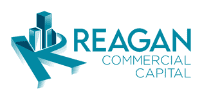SBA Loans
To support small businesses that create jobs in their local communities, the SBA acts as a guarantor on loans. This encourages lenders to grant approval for larger loans with better terms than with many other financing products. Since these loans are intended specifically for small businesses, there’s no competition from large corporations.
What is an SBA loan?
The Small Business Administration backs funding for small business loans. A number of loans are available depending on your needs. We work with a variety of lenders who are comfortable navigating the SBA approval process. You may qualify for more than one type of SBA loan and we can help you narrow down which options are your best bet.
The most popular loans...
What is an SBA loan?
The Small Business Administration backs funding for small business loans. A number of loans are available depending on your needs. We work with a variety of lenders who are comfortable navigating the SBA approval process. You may qualify for more than one type of SBA loan and we can help you narrow down which options are your best bet.
The most popular loans from the Administration are SBA 504 loans and SBA 7(a) loans. To qualify for either loan, your business must operate in the United States, be for profit, have less than $15M in net worth, and make less than $5M in net income annually. Some restrictions exist for certain types of businesses. For example, casinos, banks, churches, and private clubs are not eligible for an SBA loan. Stakeholders in your business must also pass a criminal background check.
